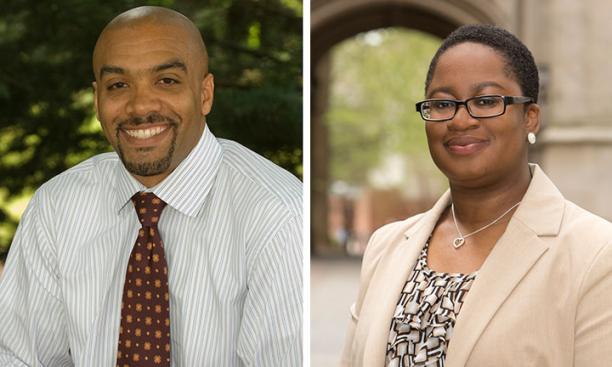


A little more than one year ago, on June 17, 2015, a white supremacist shot nine people to death at Emanuel AME church in Charleston, S.C., including pastor and South Carolina state senator Rev. Clementa C. Pinkney. In the aftermath of the shooting, Chad Williams *04, associate professor of African American studies at Brandeis University, Kidada E. Williams, and Keisha N. Blain *14, assistant professor of sociology at the University of Iowa, created the #CharlestonSyllabus hashtag on Twitter, which provided the public with a list of scholarly works on the issues related to the shooting so that people could be more informed about the issues and could better understand this act of violence in the context of America’s history of race relations.
The hashtag gained popularity and the book, Charleston Syllabus: Readings on Race, Racism, and Racial Violence, which is based on the hashtag, is a compilation of essays and columns published around the time of the shooting as well as excerpts from scholarly sources dealing with issues such as systemic racism, white privilege, and more.
The collection includes an essay from Michael Eric Dyson *93 titled “Love and Terror in the Black Church,” which speaks about the history of violence against black churches and hatred by white supremacists.
The book also includes an excerpt from African American Religion: A Very Short Introduction, by Eddie S. Glaude *97, who is the chair of Princeton’s African American studies department. In his essay, Glaude traces the history and emergence of three religions in the black community: conjure, Christianity, and Islam. He argues that conjure gave African slaves a sense of control over their lives and that Christianity served as a rallying point in the struggle against slavery and later for equal rights.
Crystal N. Feinster *00 is the author of Southern Horrors: Women and the Politics of Rape and Lynching, and the pages excerpted in Charleston Syllabus discuss lynching in the South and tell the story of Ida B. Wells-Barnett and her influential crusade against lynching.